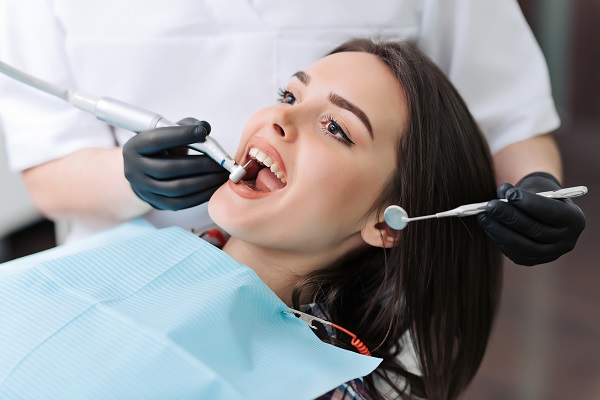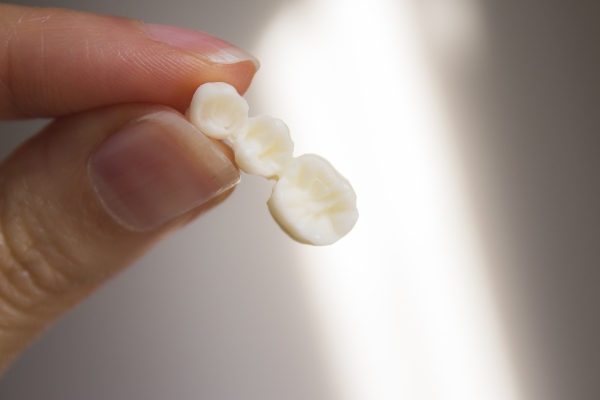Deep Teeth Cleaning: How Long Does It Take for the Gums to Heal?

Most patients can recover quickly from deep teeth cleaning because the process is minimally invasive. However, it is still helpful to understand what you can expect during and after a deep teeth cleaning to adequately prepare. This review discusses everything to know about the process, including how long it takes to heal afterward.
Everything to know about the deep teeth cleaning process
A deep teeth cleaning is a common procedure offered by dentists used to address periodontal disease. It is often highly recommended to avoid the loss of teeth in the future. There are a few similarities to a regular dental cleaning, although a deep teeth cleaning has a different purpose and is much more extensive.
What is a deep teeth cleaning?
A deep teeth cleaning, also called a scaling and root planing or deep dental cleaning, removes plaque and tartar build-up beneath the gum line. Deep teeth cleaning is used by dentists to address a condition known as “periodontitis,” which is a severe form of gum disease. Deep teeth cleaning removes plaque and tartar that contain bacteria beneath the gum line and smooths the teeth roots to enable the gums to properly attach to teeth. The entire non-surgical procedure takes place in the office in one visit, although there are times when two visits are needed to complete the process.
What is the deep teeth cleaning process?
There are two steps involved with a deep teeth cleaning procedure: scaling and root planing. Scaling, also called gum scaling or periodontal scaling, involves removing plaque and tartar above and below the gum line, including near the roots of teeth. The second step, known as root planing, involves smoothing out the roots of teeth to enable the gums to properly reattach. The dentist cleans one quadrant at a time. Some dentists recommend cleaning two quadrants on the first visit and the other two on a follow-up visit.
How long does it take to recover from a deep teeth cleaning?
Unless a strong form of sedation is used, patients can drive themselves home after a deep teeth cleaning procedure. The discomfort during the procedure is minimal, and most patients do not experience much discomfort after the procedure either. However, it can take up to a day for the gums to fully heal. The dentist should provide detailed instructions on how to properly recover after a deep teeth cleaning, which should involve using mouthwash, making smart dietary choices, and practicing good oral hygiene without irritating the gums.
Schedule a consultation to find out if deep teeth cleaning is right for you
We may recommend a deep teeth cleaning if you have signs of periodontal disease, such as deep gum pockets, gum recession, or bone loss in the jaw. To learn more about periodontal disease treatment and to find out if a deep teeth cleaning is appropriate, contact our office today and schedule a visit.
Request an appointment here: https://www.mysaratogadentist.com or call My Saratoga Dentist PLLC at (518) 675-3094 for an appointment in our Saratoga Springs office.
Check out what others are saying about our dental services on Yelp: Deep Teeth Cleaning in Saratoga Springs, NY.
Recent Posts
A healthy smile depends on more than daily brushing and flossing. If you are experiencing gum disease or severe plaque buildup, a deep teeth cleaning can restore your oral health. Unlike a standard dental cleaning, this treatment targets bacteria below the gumline and reduces the risk of serious oral health issues.Deep teeth cleaning, also known…
Maintaining optimal oral health involves more than daily brushing and flossing. Deep cleaning plays a critical role in preserving gum health and preventing long-term complications such as periodontal disease. This advanced dental procedure goes beyond routine cleaning to target bacteria and plaque beneath the gumline, helping patients maintain a healthy mouth and a confident smile.Deep…
A healthy and clean mouth requires more than brushing and flossing daily. Professional deep teeth cleanings can help prevent severe oral health issues, particularly beneficial for those with moderate to severe gum disease or plaque buildup. Deep teeth cleanings address issues that regular cleanings may miss or not be able to fully address, promoting healthier…
Most patients understand the purpose of a dental exam, which is to check on the health of teeth and the gums. However, you may be surprised to learn just how thorough of an inspection process a dental exam actually is. This review discusses the various oral conditions that your dentist can check for during a…


